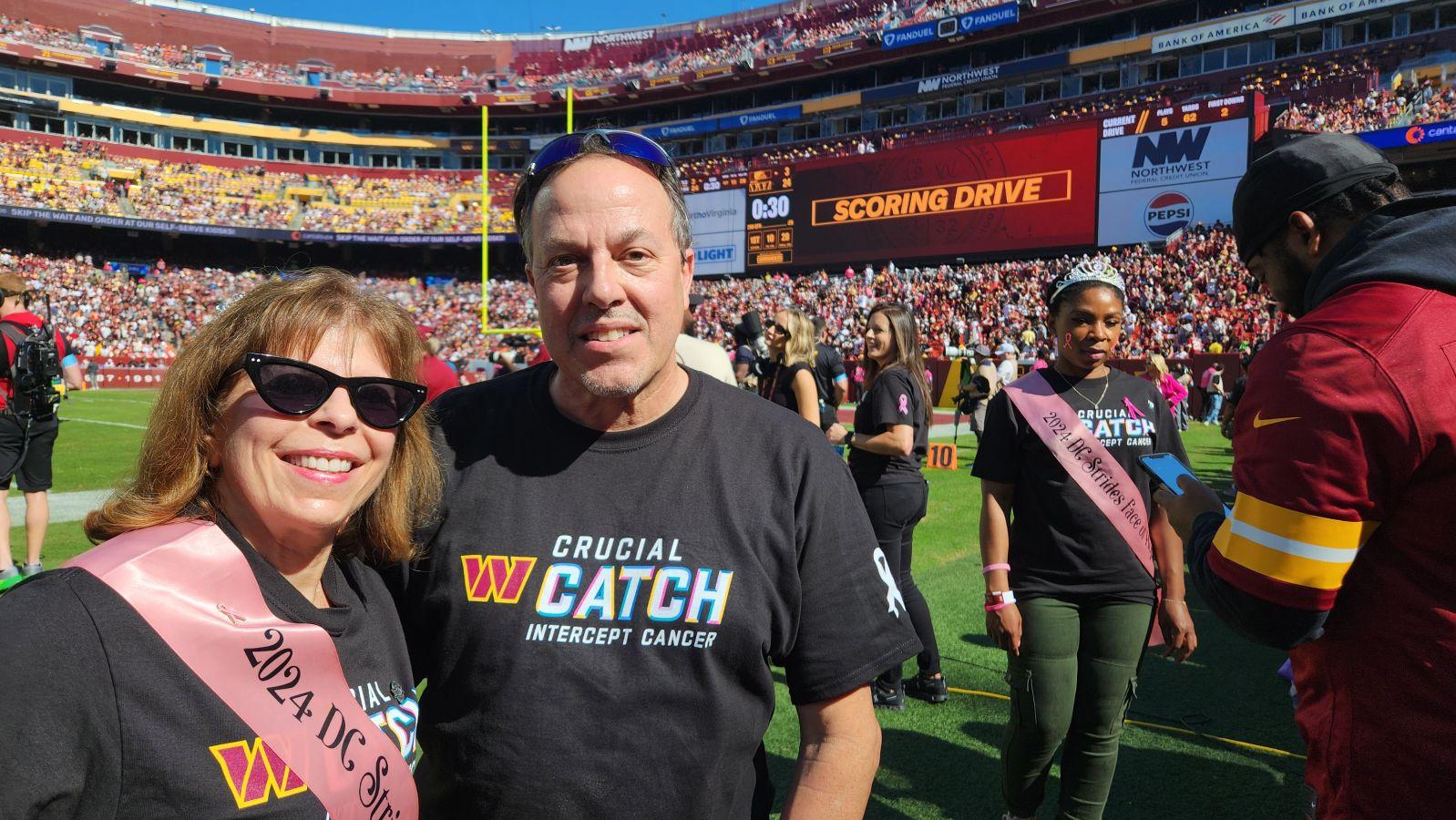From behind the wheel of her car, cancer survivor Darlene Parker was going back and forth with lighthearted banter from her passenger about the football season. He was a Dallas fan and she’s a Commanders fan so the back and forth continued as they drove to the cancer treatment center, like Parker does several times a month as a driver for the American Cancer Society’s Road to Recovery program.
“He’s a Dallas fan, I’m a Washington fan,” Parker said. They’ve become friends from the driving experience and won’t even let football come between them.
At age 71 she’s become immersed with the American Cancer Society in various ways and she isn’t looking back. Volunteering, driving and becoming friends with other survivors is one part but she’s also branched out to be an advocate too. This includes a trip to Richmond on Jan. 21 to promote House Bill 1725, known as the Medical Debt Bill. She met with delegates to promote the bill and it passed in the house. “That was exciting,” she said, “it was wonderful to think you could make a difference.”
be an advocate too. This includes a trip to Richmond on Jan. 21 to promote House Bill 1725, known as the Medical Debt Bill. She met with delegates to promote the bill and it passed in the house. “That was exciting,” she said, “it was wonderful to think you could make a difference.”
The Medical Debt Protection Act prohibits a large health care facility or a medical debt buyer from charging interest or late fees on medical debt. The bill requires a large health facility or medical debt buyer to offer a payment plan to any patient with medical debt and sets required time frames for certain extraordinary collection actions, as defined in the bill. The bill provides that a violation of its provisions constitutes a prohibited practice under the Virginia Consumer Protection Act, it read on the Virginia Legislation website.
Road to Recovery
It all started in 1977 when she was 23 and diagnosed with breast cancer. At the time, she lived in Montgomery County in Maryland and started volunteering with the American Cancer Society. Now she lives in Reston but retired last year from her job as the Director of Partnership Development at the National Captioning Institute, a non-profit organization that provides closed captioning for deaf and hard of hearing people for live television and other media.
She continued her efforts as a volunteer driver. “It’s incredibly rewarding,” she said.
According to the American Cancer Society the lack of transportation is a major barrier to completing cancer treatment. According to a study in the Journal of the National Cancer Institute, delayed care due to lack of transportation is associated with increased emergency room use and mortality risk among adults with and without a cancer history. Cancer survivors with transportation barriers had the highest risk, according to the study by scientists at the American Cancer Society and Roswell Park Comprehensive Cancer Center.
The Road to Recovery program is one way they are making things work for patients. In 2024 in the U.S., 3,678 American Cancer Society volunteer drivers gave 47,198 rides to treatment for 4,322 cancer patients. Demand for rides is always high.
This fall she found herself on the football field during halftime of the Commanders-Bears game doing the halftime show with other cancer survivors. It was the “hail Mary” game where the Commanders scored in the final seconds to set them on the path to the playoffs. For Parker, the hail Mary play was just part of her positive experience in front of a stadium full of people she’ll never forget. She even packed “Hope Kits,” alongside some of the Commanders that afternoon. It all started as a volunteer driver.
“With volunteering you get back more than you give,” she said.
The American Cancer Society is always looking for Road to Recovery volunteer drivers. They must be between ages 18 and 84, have a valid driver’s license, adequate automobile insurance, have access to a safe, reliable vehicle, pass background check and motor vehicle records checks and be comfortable using technology with reliable internet access.
“There are 19 Road to Recovery drivers in Fairfax County and of course, we can use more volunteer drivers,” said Vivienne Stearns-Elliott, the Director, American Cancer Society Regional Integrated Marketing in the Northeast Region.
To become a volunteer driver or learn more, call the American Cancer Society’s Volunteer Care Center at 800-227-2345 or go to www.cancer.org/drive.
